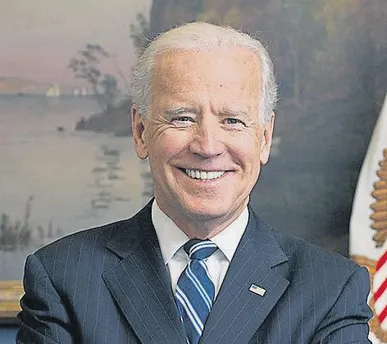
Biden: liberal changes or token gestures?

Gerald Bray
The
inauguration of a new American
President
is
always
a
time
of
great
expectations, but especially now, after the
sorry end to the previous regime.
Most people are relieved that the transfer
of power went off without a hitch. The
overarching need to deal with the pandemic
is at the forefront of everyone’s minds, and
Joe Biden’s promise to deliver 100 million
does of the vaccine in his first 100 days in
office is being widely hailed as an ambitious
but still achievable goal. In the circumstances,
other matters have taken a back seat. Biden is
a sincere Catholic and his recent attendance
at church has been duly noted,
though
some of his executive orders are not what
the Vatican would have prescribed. He has
rescinded the restrictions on abortion that
the previous administration introduced and
has appointed homosexual and transgender
people to prominent positions. He has also
removed the bar to transgendered soldiers
serving in the armed forces. It is hard to
say what practical effect things like that will have, and for the moment few people are
talking openly about them. Whether they are
the tip of a looming iceberg of radical reform,
or simply a nod to left-wing lobbies that will
soon be disappointed in their deeper aims,
remains to be seen.

The US in turmoil: what next for US evangelicals?

Gerald Bray
As en was going to press, Joe Biden was due to be sworn in as President, with more trouble predicted on the streets. Gerald Bray, distinguished Professor of Historical Theology at Knox Theological Seminary, and Director of Research for the Latimer Trust at Oak Hill in London, reports exclusively for en from the United States.
When Donald Trump lost the election last November there was one thing that everybody agreed on – he would not go quietly.
Sarah Mullally: 'Undertrained and inexperienced'
After months of speculation, the Church of England has finally appointed a new Archbishop of Canterbury. The first woman in the post, she is the current Bishop of London and as such has already played a senior role in the Church for several years.
Her theological training and ministerial experience are minimal. She was enrolled on a local ordination course rather than at a theological college and served a couple of part-time curacies before being very briefly rector of a parish church. She was soon promoted to the episcopate as suffragan bishop of Crediton, but her main achievement appears to be that she was a competent administrator in the National Health Service. Is a track record like that promising for a future Archbishop of Canterbury?